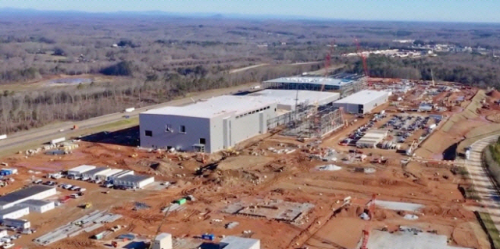[LG-SK 배터리 분쟁 새 국면]
US EV market is growing rapidly…SK ’10 years ban’ fatal
LG also has a 4-5 year litigation risk at worst… a burden to endure high posture
Ford and Volkswagen are also pressured…the two companies’ “need to agree” position is clear
 viewer
viewer
When the final ruling of the US International Trade Commission (ITC) came out on the 10th (local time), LG Energy Solutions and SK Innovation, the parties to the lawsuit, made an official position and insisted that the lawsuit must be completed as soon as possible. The goal is not to consume power through lawsuits in the face of an explosive increase in global electric vehicle battery demand. Still, he made it clear that whether or not an agreement is reached depends on the other’s attitude. LG set the day to tell SK, “Propose (agreement) in line with the final decision.” On the other hand, SK made a problem with the size of the settlement fund proposed by LG, saying, “I will always negotiate an agreement under reasonable conditions.” It is known that LG has offered around 3 trillion won for settlement and SK has offered hundreds of billions of won.
Although the goal of ending the lawsuit through agreement is the same, there is a clear difference between the two sides over the size and method of settlement money, so a considerable nervous war is expected to take place in the negotiation process. However, observations are gaining convincing whether SK, which has suffered enough damage from the ITC’s ruling to consider the sustainability of the battery business, will eventually be forced to step down.
 viewer
viewer
The electric vehicle market is growing rapidly… ’10 years ban’ fatal
The 10-year import ban that ITC admitted to the infringement of SK Innovation’s trade secrets is very strong. Both LG Energy Solution, which filed a lawsuit, and SK Innovation, which defended it, are in an atmosphere that the intensity of the action is stronger than expected.
Above all, the 10-year period when battery production in the US became impossible is fatal for SK Innovation. With the launch of the US administration, Joe Biden, which emphasizes responding to climate change, the eco-friendly automobile industry in the US, including electric vehicle batteries, is expected to grow rapidly over the next several years. US President Joe Biden has pledged to add 500,000 electric vehicle charging stations by 2030 and provide various incentives to eco-friendly vehicles.
However, ITC gave a four-year and two-year grace period for Ford and Volkswagen, a vehicle maker that agreed to supply batteries after signing a supply contract with SK Innovation. SK Innovation is building a 21.5GWh battery production line to supply these companies with about 3 trillion won in Georgia. It is a scale that can be installed in 430,000 electric vehicles. ITC’s grace period is interpreted as a consideration to prevent immediate damage to these automakers, employees, and local communities. In addition, it is an evaluation that the two companies were considered to be able to find other battery suppliers during the grace period.
Pressure of agreement from both sides from all sides
SK Innovation expects President Biden’s right to veto import bans, which can come out within 60 days. If the veto is not exercised, SK Innovation has no alternative but consensus. SK Innovation’s automakers are also pressing the agreement. Ford’s CEO Jim Parley, who needs to receive batteries from SK Innovation’s Georgia plant, said, “The agreement between the two companies will ultimately be in the best interests of US EV manufacturers and workers.” Went out.
Volkswagen also asked the US government to grant a grace period of at least 4 years instead of 2 years, saying, “We suffered unintended damage from the dispute between Korean suppliers. The actions of the two companies, which are customers, are a considerable burden to SK Innovation. In addition, the stigma effect of being a’trade secret infringement’ inevitably acts as a significant weakness in SK Innovation’s additional order-taking activities.
LG Energy Solution also won the ITC final ruling, but it is not a small burden to negotiate with a high attitude. In the worst case, if the agreement breaks down and the US ITC lawsuit appeals and the subsequent civil lawsuits in the Delaware federal court are initiated in earnest, the battery business will have to be developed with the risk of litigation for four to five years. An official in the industry said, “LG wins only when it comes to the ITC litigation itself, but in the end it seems that LG also needs an agreement.”
The biggest challenge is the amount of settlement money
It is clear that both companies need an agreement. However, there is too much disagreement over the settlement money. It is reported that LG Energy Solutions is demanding about 3 trillion won for settlement. The industry talks about how to pay a certain percentage of SK Innovation’s future battery sales and provide some shares of SK IE Technology, which produces core materials for batteries. An LG official said, “The settlement was prepared based on the preliminary ruling last year, but now the final ruling has come out.”
SK Innovation is in a position that LG’s request is unreasonable. SK Innovation suffered an operating loss of 420 billion won in the battery business last year due to initial investment, etc., and it is urgent to secure additional investment resources. An official of SK said, “The amount of settlement funds required by LG Energy Solutions is such that SK Innovation cannot do battery business.”
/ Reporter Han Jae-young [email protected]
< 저작권자 ⓒ 서울경제, 무단 전재 및 재배포 금지 >
